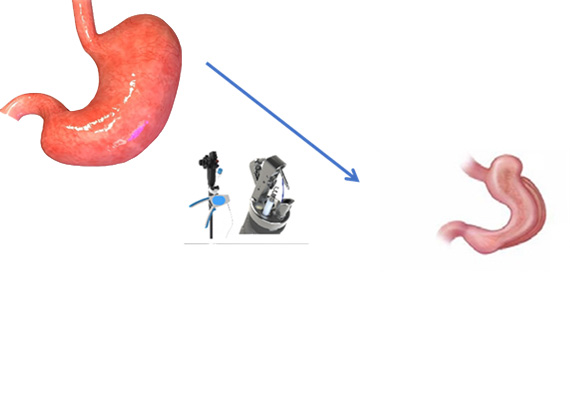Endoscopic Sleeve Gastroplasty
Endoscopic Sleeve Gastroplasty
Endoscopic Sleeve Gastroplasty is an endoscopic procedure performed for the treatment of obesity. The procedure is a restrictive bariatric procedure to treat obese patients ideally suited to patients with a BMI in range of 28-33. It encourages weight loss by restricting the stomach size so it holds only a limited amount of food. This helps patients to eat less without hampering the normal digestive process. The patients feel full after a smaller meal and feel hungry after longer intervals.
Disease Overview
- Obesity is a chronic condition in which there is an excessive accumulation of fat in the body.
- Obesity is defined as a Body Mass Index (BMI) of 28 and above and extreme or morbid
- obesity is a BMI of 40 or more.
- Obesity is a global problem affecting people of almost all age groups, and is associated with increased risk of cardiac problems, diabetes, high blood pressure, breathing difficulties, and other diseases.
- Indications:
- Endoscopic Sleeve Gastroplasty is ideally suited for people with a BMI in range of 28-33
(Asian population)
- The procedure is recommended when diet, exercise or medication have not helped in reducing the patients weight.
Procedure:
- The procedure is performed under general anaesthesia. The doctors uses a suturing device mounted on the tip of endoscope inserted through your mouth to reduce the size of your stomach by taking full thickness sutures. There are no external scars.
Advantages and Disadvantages of endoscopic sleeve gastroplasty:
Advantages:
- Reduced stomach size makes you feel full sooner.
- Normal functions of the stomach are retained.
- Simpler than other bariatric surgeries.
- Can be performed through the mouth thereby an incisionless surgery
- Shorter hospitalization stay
- Less operative time
- No implant used as in lap band surgery.
- Minimal post-operative pain and discomfort.
- Shorter recovery time
- Does not preclude further weight loss intervention including surgery if needed later.
Disadvantages:
- This being a new procedure long term data (> 5 years) on weight loss are not available
- Post-operative care:
- Your doctor will prescribe pain relieving medications to keep you comfortable following the
procedure.
- You will be advised to take medication to reduce the amount of acid produced by your stomach.
- Avoid strenuous exercises and lifting heavy weights until approved by your surgeon
- For the first month after the procedure, eat only small amounts of soft foods
- Sip water throughout the day to prevent dehydration.
- Eat a highly nutritious diet rich in proteins with a low fat content.
- Your dietician will tailor a new diet regimen for you to follow.
Risks and Complications:
- As with any intervention there are potential risks and complications involved. The risks include blood loss (hematoma), infections, problems associated with anaesthesia.
- The major complication following endoscopic sleeve gastroplasty is occasional case reports of abcess or injury to surrounding structures.


